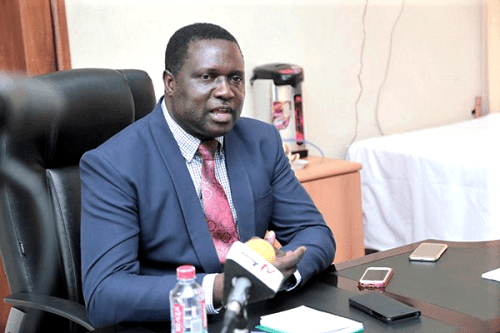Don’t rush passage of Free SHS bill – GNAPS advises Govt

The Ghana National Association of Private Schools (GNAPS) has expressed grave concern about pronouncements on a purported Free Senior High School (SHS) Bill which is intended to be laid before Parliament.
The proposed Free Senior High School (SHS) bill aims to codify the Free SHS policy into law and ensure its implementation by all successive governments.
But GNAPS in a statement signed by its President Prof. Damasus Tuurosing, “advised Government to hasten slowly on this bill, and give sufficient time for stakeholder consultations.”
According to GNAPS it is worried because characteristic of how important decisions on education are handled in this country, private schools, which account for 49% of educational establishments and 33% of pre-tertiary enrolments in Ghana, have been side-lined in deliberations on the Bill.
“The exclusion of GNAPS, a major stakeholder, from consultations on this critical Bill undermines the collaborative spirit necessary for effective educational reforms. Inclusive dialogue is essential to ensure that any changes to the education system are beneficial and sustainable. Government ought to have learnt its lessons from the Free SHS debacle; how its failure to consult private schools before implementing the novel policy resulted in challenges that could have been averted – overcrowding resulting in Double Track System, feeding challenges, overstretched staff etc,” the statement added.
Below is the full statement
HASTEN SLOWLY WITH THE FREE SENIOR HIGH SCHOOL BILL
The Ghana National Association of Private Schools (GNAPS) has noted with grave concern
pronouncements about a purported Free Senior High School (SHS) Bill which is intended to be laid before Parliament. GNAPS advises Government to hasten slowly on this bill, and give sufficient time for stakeholder consultations.
GNAPS is worried because characteristic of how important decisions on education are handled in this country, private schools, which account for 49% of educational establishments and 33% of pre-tertiary enrolments in Ghana, have been side-lined in deliberations on the Bill.
The exclusion of GNAPS, a major stakeholder, from consultations on this critical Bill undermines the collaborative spirit necessary for effective educational reforms. Inclusive dialogue is essential to ensure that any changes to the education system are beneficial and sustainable. Government ought to have learnt its lessons from the Free SHS debacle; how its failure to consult private schools before implementing the novel policy resulted in challenges that could have been averted – overcrowding resulting in Double Track System, feeding challenges, overstretched staff etc.
While information on the proposed Free SHS Bill remains scanty, one controversial aspect of it in the public domain is the cancellation of the Basic Education Certificate Examination (BECE). Periodic external assessment of learners is essential in identifying their strengths and weaknesses, and introducing the right interventions to achieve learning outcomes. Therefore, we strongly object to the cancellation of BECE which serves as a major measuring rod of learner attainment after nine years of basic education.
Before the proposed Bill is sent to Parliament, GNAPS requests that the Minister of Education convenes series of consultations with all relevant stakeholders, including GNAPS, and conducts thorough assessments to understand the potential implications of cancelling BECE and extending SHS to six years. This will ensure that potential challenges to implementation of the Bill are identified and addressed.
GNAPS remains committed to working collaboratively with Government and other stakeholders to achieve national educational aspirations including a high quality, equitable education system for all Ghanaian children. GNAPS believes that through inclusive dialogue and careful planning, Ghana will benefit from an educational system that supports the aspirations and needs of every learner in the country.




